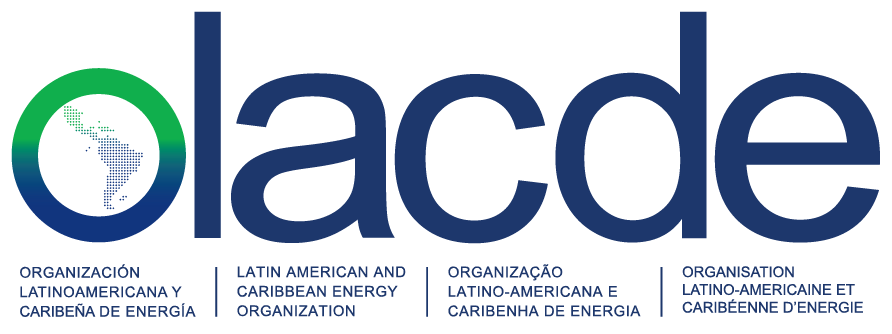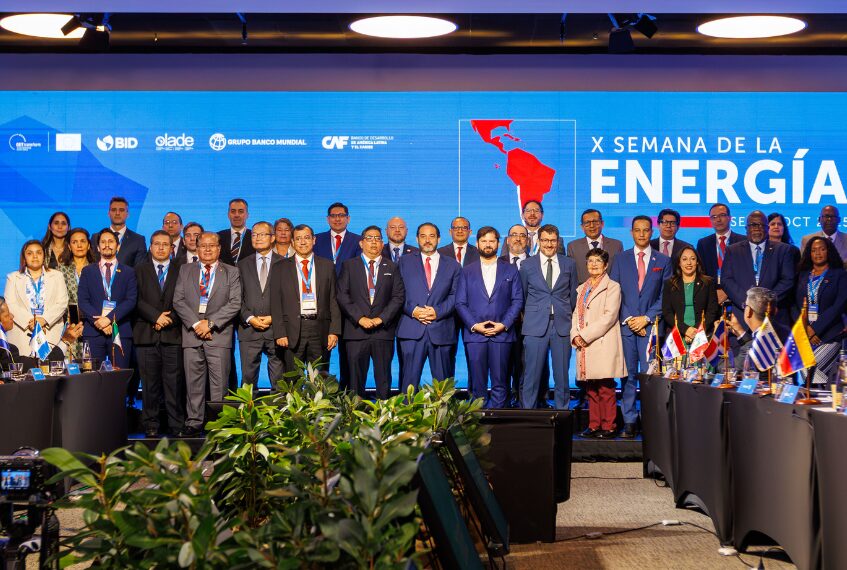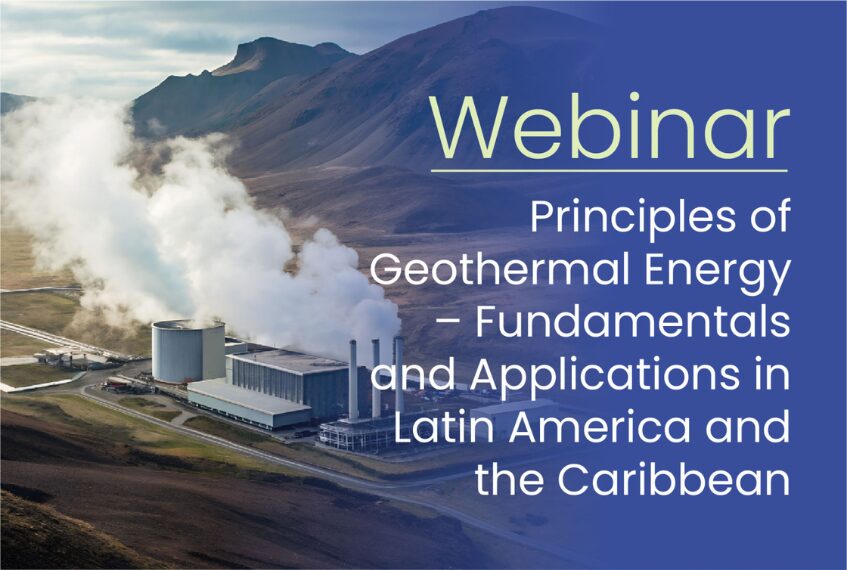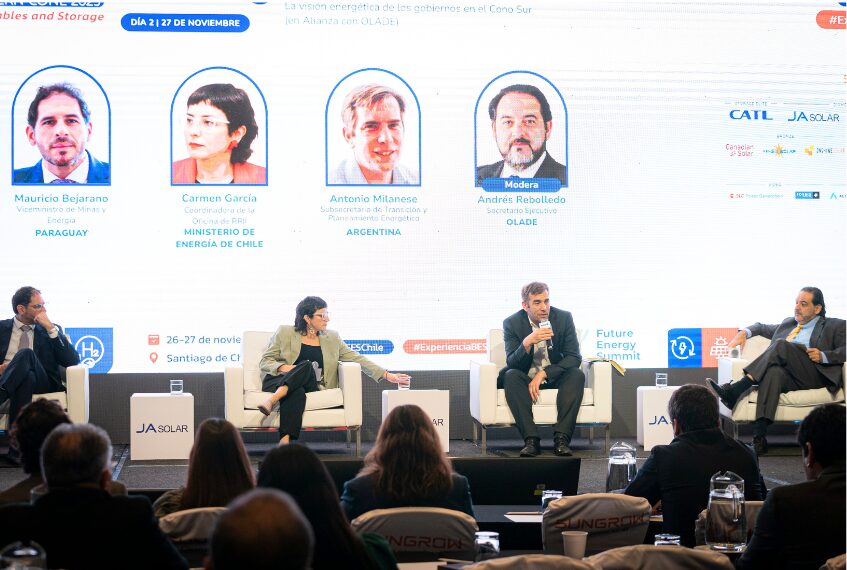With more than 2,500 participants from 49 countries, 220 panelists, and 160 international organizations, the 10th Energy Week concluded in Santiago, Chile, consolidating its position as the most influential energy forum in Latin America and the Caribbean. Organized by The Latin American and Caribbean Energy Organization (OLACDE), the Ministry of Energy of Chile, the Inter-American Development Bank (IDB), the Development Bank of Latin America and the Caribbean (CAF), the World Bank, and GET.transform, the tenth edition brought together energy ministers, business leaders, representatives of multilateral organizations, experts, academia, youth, and civil society over four days to discuss regional energy integration, just transition, and energy resilience in the face of climate change.
The LV Annual Meeting of OLACDE Energy Ministers, held within the framework of the Week, reached key agreements for the future of the sector. Member countries approved Ministerial Decisions on four fundamental areas: energy and employment, dialogue for regional regulatory convergence, just energy transition with communities near projects, and energy storage, a cornerstone for the flexibility of the region’s electrical systems. Likewise, a regional goal was adopted to achieve 95% access to clean cooking technologies in Latin America and the Caribbean, with the vision that each country advances according to its sovereignty and its social, economic, and cultural realities.
During the same session, countries re-elected Chilean economist Andrés Rebolledo Smitmans, as Executive Secretary of OLACDE for the 2026–2029 term, and the presidency of OLACDE was officially transferred to Belize , strengthening Caribbean representation in regional energy governance.
The inaugural ceremony of the LV Ministerial Meeting was presided over by the President of the Republic of Chile, Gabriel Boric Font, who emphasized the role of energy as a driver of regional development and a symbol of cooperation.
“Energy is to the 21st century what trains were to the 19th. We still have much to accomplish together. OLACDE demonstrates that we can improve the quality of life of our citizens beyond rhetoric,” said the Chilean President, underscoring that energy collaboration can translate into concrete progress for the peoples of Latin America.
Boric also praised OLACDE’s leadership in regional integration.
Over four days of debate, more than 60 hours of technical sessions, keynote conferences, and policy dialogues took place, covering topics such as electric and gas interconnection, just energy transition, grid modernization and storage, green hydrogen and future fuels, energy efficiency, education and gender equality, and climate resilience.
Among the featured sessions were: “Connecting LAC: How to achieve a regional energy market,” “Transforming consumption: Strategies for demand decarbonization,” “The regional energy landscape: Keys to planning resilient and interconnected systems,” “Strategic value chains for the transition,” and “Smart consumption: The future of electricity demand in Latin America and the Caribbean.”
A key focus of the event was promoting the regional portfolio of electric and gas interconnection projects, as well as consolidating a regional agenda for resilience and emergency response with multilateral coordination protocols. In parallel, public–private cooperation spaces were held, such as the 3rd Business Council, the 3rd Regulators Forum, and closed dialogues focused on strategic mining, transport, industry, natural gas, hydrocarbons, power generation, and electric transmission.
Among the most relevant milestones, the 2025 White Paper on Sustainable Mobility was presented, offering a comprehensive view of progress and perspectives for sustainable mobility in the region, along with the White Paper on Energy Storage in Latin America and the Caribbean, a technical publication by OLACDE that analyzes storage as a strategic pillar to achieve a sustainable and inclusive transition, addressing technologies such as batteries, pumped hydro, thermal storage, and green hydrogen.
The official launch of the Latin American and Caribbean Women in Energy Network (RedLACME) was also held —a collaborative space bringing together more than 1,200 women from across the region, founded alongside national associations in Argentina, Uruguay, the Dominican Republic, and Chile— aimed at strengthening women’s representation in the energy sector and contributing to a just and inclusive transition.
Another major announcement was the creation of the Latin American and Caribbean Energy Center – ENLACE, an initiative led by OLACDE and the University of Chile, conceived as a regional hub for knowledge and technical cooperation that will foster dialogue among governments, academia, multilateral organizations, and the private sector to accelerate the energy transition.
During the Week, the second edition of the OLACDE Energy Excellence Awards 2025 was also held, achieving a record 104 applications from 15 countries. The ceremony recognized innovative projects in energy efficiency, renewable energies, education, and decarbonization, highlighting the region’s commitment to innovation and sustainability.
“It has been a very productive week, where Latin America and the Caribbean’s energy agenda was discussed in depth, addressing fundamental issues such as grid modernization, storage, demand decarbonization, green hydrogen, and future fuels. Renewable energy will continue to be the cornerstone of the region’s energy development,” said Andrés Rebolledo, Executive Secretary of OLACDE.
With its closing in Santiago de Chile, the 10th Energy Week reaffirmed that Latin America and the Caribbean are moving together toward a more sustainable, inclusive, and integrated energy future, and announced that the 11th Energy Week will take place in the Dominican Republic in October 2026, continuing this regional cooperation platform driving the continent’s energy transformation.





